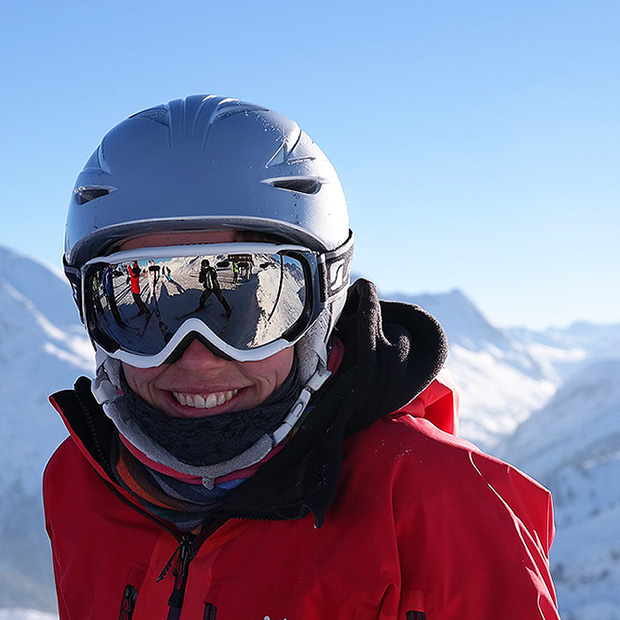Protecting Your Eyes From Snow Blindness

Have your eyes ever felt gritty and watery after an outdoor adventure? Maybe you felt a burning sensation and suffered temporary vision loss?
If this sounds familiar to you, you may have been exposed to high levels of UV rays from light reflections while boating, hiking at high elevation, or participating in snow sports like skiing and snowboarding. This condition, formally called photokeratitis, is particularly common in winter, and you might have heard of it by the name “snow blindness.”
Why Snow Blindness?
Photokeratitis is essentially getting a sunburn on the surface of your eye. This can happen in most climates with strong sunlight, particularly when there are reflective surfaces such as white sand, water, or especially snow. You could also get it without any sun at all, from man-made sources of light like welding torches!
The reason photokeratitis is so much more common in winter is that the snow reflects up to 80 percent of the UV rays that hit the ground, so your eyes get almost a double dose of sunlight. The high altitude is a factor as well. One of the dangerous things about photokeratitis is that, like a normal sunburn, it can take hours before the symptoms appear. As a result, you might keep exposing your eyes to harmful UV rays even after the damage has begun, making the condition more severe.
Soothing Snowblind Eyes
If you do get snow blindness as you enjoy winter activities, there are a few simple ways you can treat it to help your eyes recover more quickly. Photokeratitis dries out the eyes, so you’ll want to restore the lost moisture with things like wet cloths, humidifiers, and eyedrops. Remove your contacts if you wear them and avoid rubbing your eyes. If possible, you might also want to cover the affected eye (or eyes) with patches so that they aren’t further irritated by additional light.
[iframe https://www.youtube.com/embed/N0-0zv4rZt8?rel=0 620 349]
Having The Right Eye Protection
Knowing how to treat snow blindness is useful, but it’s even better to avoid getting it in the first place. That’s where protective eye wear comes in, so you can spend as much time as you want shredding moguls on your snowboard or carving slopes on your skis this season. Make sure to get sunglasses — or, preferably, ski goggles — that block 100 percent of UV light. Polarized lenses will also greatly reduce glare and help you see contrast better in the snow.
We’re Here For You
Snow blindness typically heals on its own after a day or two, but if your symptoms are worsening after the first day or aren’t going away after the second day, you should come see us immediately. We hope you have a wonderful time this ski season, but don’t forget to protect your vision!